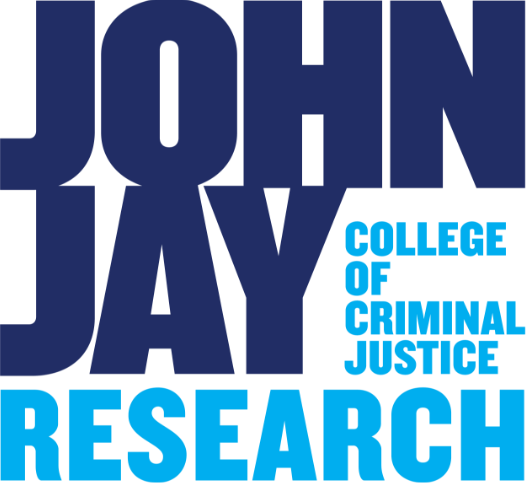Bringing Justice Back to the System
NEW RESEARCH COULD LEAD TO MORE JUST LEGAL OUTCOMES
Researchers: Gloria Browne-Marshall, Kelly McWilliams, Deryn Strange, Margaret Bull Kovera, Aída Martínez-Gómez
Author: Michael Friedrich
Striving for equal courtroom justice is especially important as America addresses its high rates of imprisonment and the racial and economic disparities they reflect. “We have mass incarceration that’s unfortunately disproportionately shouldered by people of color,” Browne-Marshall said. “So people are looking at the outcome and saying there’s something wrong.”
But how do we change the system? Behind the scenes, researchers in psychology have been working on methods to promote courtroom practices that are fairer and more impartial. When courtroom participants—including attorneys, judges and juries—have a better understanding of the research on human psychology, it can help avoid errors and lead to more just outcomes. Today, a host of scholars at John Jay College are leading the charge to develop these findings, share knowledge as expert witnesses, and train officers of the court.
SPEAK, MEMORY
One process ripe for improvement is taking testimony from child victims. “Adults asking kids questions has all these complex layers,” said Dr. Kelly McWilliams, a professor of psychology. McWilliams and her team study the ways children use and understand language, and experience memory, in courtroom settings. Not only must a child apprehend the concepts of an adult’s question, they must also recall the memory and repeat it accurately, she explained. Meanwhile, an adult must take care not to introduce false memories.
Research shows that children’s memories are more limited than those of adults. But gaining helpful testimony from children is more about the questions you ask than about their abilities. “They are able, if they’re asked the right way, to remember accurately certain things that have happened to them,” McWilliams said. The National Institute of Child Health and Human Development has created a gold-standard set of recommendations for asking children questions in forensic and courtroom settings. These include asking open-ended questions, avoiding closed-ended questions, and using “cued invitations,” or general prompts designed to gather only the information a child provides directly.
McWilliams’s research has built on the NICHD recommendations. She is testing new modes of questioning to gather details that children might not share in response to open-ended questions—information that can be necessary for charging or establishing a child’s credibility as a witness, like how many times an assault took place, where it happened, and what acts were perpetrated. Her team now delivers trainings across the country for representatives of the child advocacy system, as well as associations of family court judges.
These evidence-informed questioning practices foster better courtroom outcomes. “This type of research really speaks to the fairness of the process for victims and for witnesses, as well as for defendants,” said McWilliams. “These are practices that take into account what kids are capable of doing and what we should and shouldn’t be asking them to do as witnesses.” The result is more accurate and equal justice for both the victims and the accused.
TRAUMA RESPONSE
Children, of course, aren’t the only ones prone to unreliable memory in the courtroom. Adults also demonstrate shaky recollections in their testimony, especially when recounting traumatic experiences. “The most important finding really is that memory is malleable and reconstructive, rather than an exact replica of any given event,” said Dr. Deryn Strange, a researcher in psychology. Memories of an event like a crime can change with time and with the introduction of new information. Often, a victim will experience intrusive thoughts about the incident, including things they wish they did differently and “catastrophizing,” said Strange. Those thoughts can be incorporated into memories, even if they didn’t happen.
This process can cause problems in a legal proceeding. “Whenever somebody’s memory is on trial—be it a victim’s memory, a defendant’s memory, a witness’s memory—the jury, the lawyer, the judges all need to understand the power and the limitations of how our memories work,” said Strange. Absent that understanding, courtroom participants make mistakes, which can lead to wrongful convictions if an eyewitness makes errors, or wrongful acquittals if a victim’s memory is inconsistent and the jury doubts their testimony.
Like McWilliams, Strange has devoted her work not only to research on memory but also to educating courtroom officials on the vagaries of memory and the importance of taking that into account during legal decision-making. She not only serves as an expert witness, she also leads tutorials for groups of attorneys and judges, giving them practical examples and explaining the research findings.
In Strange’s view, the system will not produce fair outcomes if participants are unclear about how memory works, or if their decisions are based on whims or misunderstandings. “If you have juries using [inaccurate] expectations about the way memory would work,” she explained, “then those decisions may very well be unjust.”
WEIRD SCIENCE
Courtroom participants like attorneys, judges, and jurors can also use help determining which pieces of scientific evidence are credible. For two decades, Dr. Margaret Bull Kovera, a social psychologist by training, has conducted research on this issue. “There is some clinically based work admitted into the courtroom that has not been particularly well documented,” said Kovera. Evidence like repressed memories and bite analysis—even things that capture the popular imagination, like fingerprint evidence—lack a solid basis in science. Often, though, they make their way into evidence, with expert witnesses for the prosecution confidently expounding upon them. Judges don’t know enough not to admit them; defense attorneys aren’t familiar enough with the science to challenge them; in turn, juries consider them in their decision-making. The result? “They make decisions that are really not borne out by the evidence, if one were evaluating the evidence properly,” she said. Kovera has conducted research on a set of safeguards that may contribute to better decisions. The most promising method is simply to highlight flaws in the evidence during cross examination. That’s something defense attorneys can be trained to do. Opposing experts can also help provide a balanced perspective on questionable evidence—although that method can render jurors more skeptical of research altogether, warns Kovera.
These are important considerations in fostering greater neutrality in decision-making and less bias. “In that way, I am working to make procedures more fair and help people make better decisions,” said Kovera, “and improve the quality of evidence.”
OPEN TO INTERPRETATION
What happens in cases where a defendant is convicted and incarcerated? Fairness across the criminal-justice system includes grappling with questions like language-access policy in prison. Many incarcerated people don’t speak the official language of the institution in which they’re being held, said Dr. Aída Martínez-Gómez, a professor of legal translation and interpreting who studies these issues internationally. The level of access to prison interpreters varies widely from country to country.
Denying incarcerated people language-access services has dire consequences. “There is a question of inequality,” said Martínez-Gómez. Her research shows that incarcerated people who suffer language barriers face roadblocks to accessing a range of important services, from educational programs to counseling, to medical and mental health treatment. “The people that are treating them might not be diagnosing them correctly, or they may not understand the treatment plan for the medication they have to take,” she said, for example.
Some promising solutions exist. According to Martínez-Gómez, incarcerated people are better able to navigate admission forms, requests and services when a prison provides printed, video and audio materials translated for different populations. Yet the method she advocates most strongly is nonprofessional interpreting services—that is, translation provided by incarcerated peers. Martínez-Gómez’s research has shown that this method holds great promise. She pointed to one exemplary person she studied, who found tremendous benefit in the program: “This not only contributed to overcoming the language barrier in the prison, but also contributed to his specific rehabilitation goals and potential job opportunities once he finishes his sentence.”
In the end, creating a fairer system means using empirical evidence to apply justice accurately and equally in the courtroom and beyond—and to avoid administering justice in arbitrary, capricious, or discriminatory ways. After all, disparities thrive in the areas where memory is unclear, language is murky and the empirical basis for evidence is tenuous.
It’s true that such research won’t solve every inequality, particularly racial inequality. Browne-Marshall explained that larger shifts will need to occur in the appellate court system to change the law of the land on larger questions of misconduct. In the meantime, though, small changes can move the needle on basic fairness. “There is a direct correlation between these studies and the ability to create a better process.” JJ


Gloria Browne-Marshall is a member of the bar of the Supreme Court, legal commentator, author and playwright.



Kelly McWilliams is testing methods to solicit accurate, unbiased testimony from children.
“Whenever somebody’s memory is on trial, the jury, the lawyer, the judges all need to understand the power and limitations of how our memories work.”
— Deryn Strange
